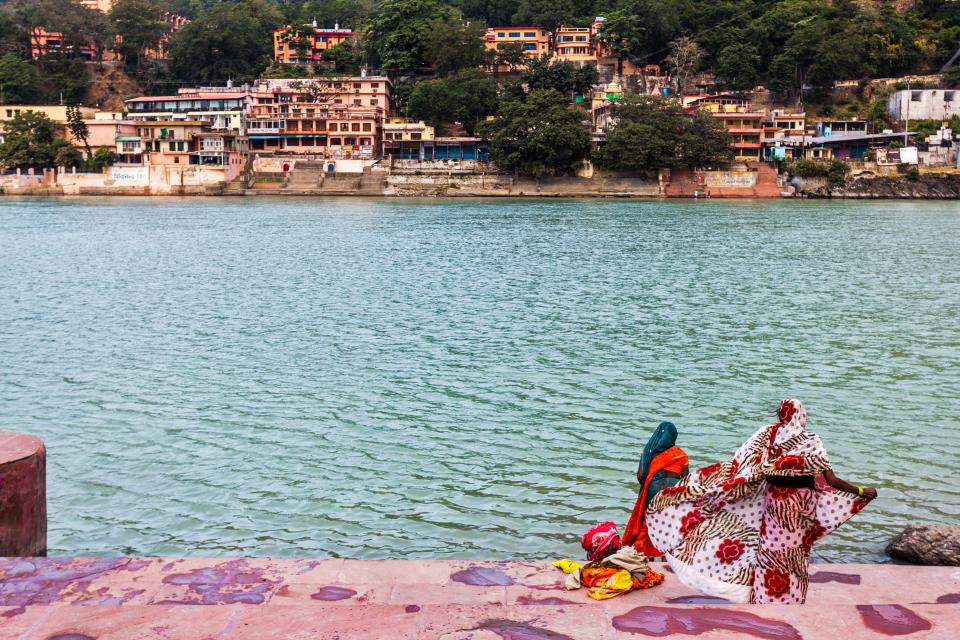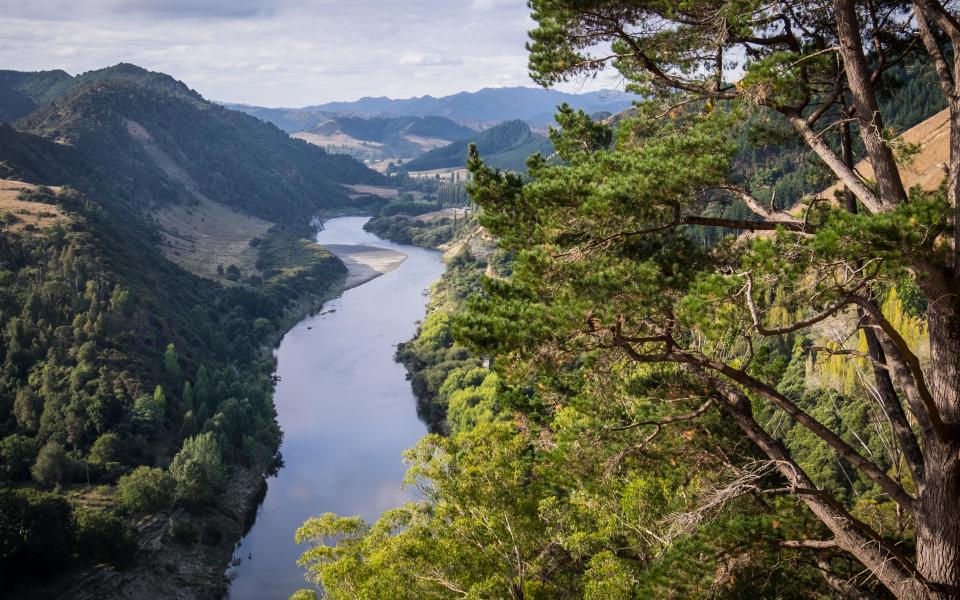New Zealand and India Have Rivers That Are Now Legally Living Entities
By Betsy Blumenthal. Photos: Alamy, Getty.
New Zealand’s Whanganui River has long been sacred to the local Māori, known as the Whanganui Iwi—but it now has a new claim to fame. As of March 15, it became the first river in the world to be granted the same legal rights as a human being, the Guardian reports.
In the Te Awa Tupua bill passed earlier this month, New Zealand’s Parliament voted to recognize the 180-mile-long body of water, located on the country’s North Island, as “an indivisible and living whole comprising the Whanganui River from the mountains to the sea.” The bill also included an apology from the government for failing to do more to protect the river from harmful practices like gravel extraction, which destroyed fish habitats, and for failing to formally recognize the group's sacred relationship with it, for which they have been lobbying since the 1870s.
The Whanganui Iwi view the river as a living, breathing ancestor—and now the government does, too. Do harm to the river, and you'll be punished as though you've harmed a member of the tribe. The river will be jointly represented by two guardians—one representing the Crown, and the other representing the Whanganui Iwi—who will act in its best interests. The Crown will also pay up for its damages, with a settlement that includes a grant of NZ$80 million (around $56 million USD) as restitution to the Whanganui Iwi, as well as an additional NZ$1 million ($703,000 USD) intended to help establish a legal framework for the now-person. It will also include NZ$30 million ($21 million USD) to kickstart a fund for the well-being of the river.
Inspired by the New Zealand ruling, the High Court of the northern Indian state of Uttarakhand ruled Monday to confer personhood to, not one, but two rivers that pass through the country, the Washington Post reports. Overseen by three officially-appointed custodians, the Ganges and its major tributary, the Yamuna—both revered as sacred by the roughly one billion Hindus living in the country—will now be subject to the same laws as a human being. Harm the rivers, by damaging it with pollutants, for example, and you'll be punished as if you had harmed a person.
Due to break-neck development in the country, parts of both the Ganges and Yamuna are heavily polluted, and this step was seen as a way to remedy that. Some environmentalists, however, are skeptical. "Merely announcing that it is a living entity will not save the river,” Vimlendu Jha, an environmental activist who works on Yamuna conservation efforts, told the Post. “The state government, officials, and citizens need to act to clean up the river and stop further pollution.”
The notion of conferring personhood onto natural, non-human entities is an infrequent, though not entirely new concept—and New Zealand leads the charge in that respect. In 2014, the country relinquished ownership of Te Urewera, an 821-square-mile national park on the North Island, and declared it would have the same legal rights as a person, under the eponymously-named Te Urewera Act. India, however, may continue to follow suit: After the river designations, the same High Court is now reviewing a petition to consider the Himalayas a "juristic person" as well, the Times of India reports.
This article was originally published on March 19, 2017. It has been updated with new information.
This story originally appeared on Conde Nast Traveler.
More from Conde Nast Traveler:
Readers' Choice Awards Reveal Best Hotels
10 Ways to Make Your Flight Hate You
The 50 Most Beautiful Places in Europe
The Most Beautiful Coastal Towns in Italy


